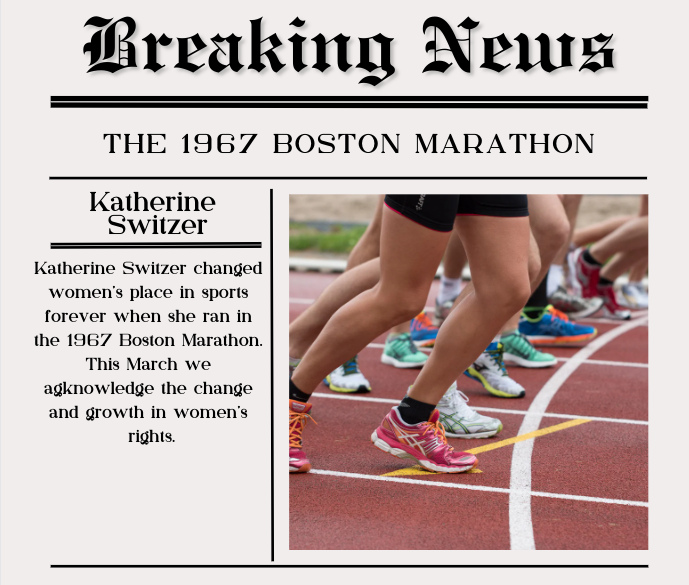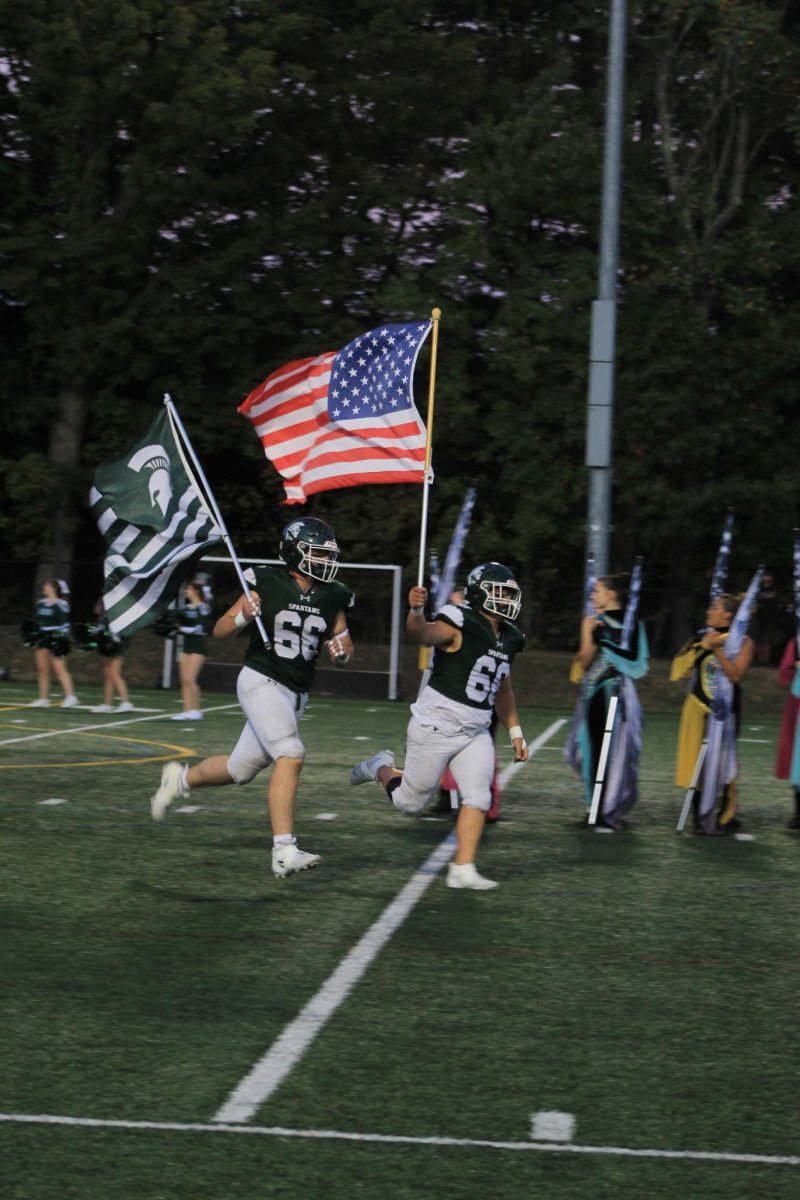A woman, the kindest, most fragile example of our species, surely impossible for one to run a marathon. Surely a woman can’t beat one of the greatest physical feats known to mankind, a 26.2-mile-long trek through the beautiful streets of Boston.
Even if a woman were to be fully capable of running one, which was highly doubted, it would be ridiculous to allow one to run the Boston Marathon. Right? That’s a man’s world. Well on April 19, 1967, every idea of a woman’s strength would be turned around.
A cold run in mid-December would lead Arnie Briggs, a veteran of 15 Boston Marathons, to make a deal with Katherine Switzer. A deal that would be so influential that it is the reason I am writing this today. Time and time again Briggs and Switzer would find themselves arguing back and forth about the Boston Marathon, until one day Briggs said, “If any woman could do it, you could, but you would have to prove it to me. If you ran the distance in practice, I’d be the first to take you to Boston.”
Switzer took this as a challenge, and yet a promise to herself to be the first woman to ever run the Boston Marathon. After weeks of treacherous training, the day came, when Switzer and Briggs would go on their 26.2-mile-long trial marathon. Though to some a marathon seems to be the equivalent of climbing Mount Everest or diving to the depths of the Mariana Trench, to Switzer it was more than running, it was becoming the quintessence of women in sports.
After Switzer had easily completed this trial she decided to add an extra five miles to her trial, just going further to show how incredibly talented she was. With this event having occurred Briggs told Switzer how absurd it would be for her to not enroll in the marathon. Reading the rules and regulations colsey Switzers learned there is nothing written to discriminate against someone for their gender, and with this, she would hand in her 3-dollar registration fee and collect her number.
741 runners, 741 male runners, and 1 female runner. Although the race consisted of a ginormous pool of talent one person would stand out, number 261, Katherine Switzer. Within the first few miles of the race, people would notice. People would notice that something had changed, something wasn’t the way it always was, and someone had become an advocate for the voices that had been silenced for so many years.
Enraged by this idea of “abnormality” Jock Semple would proceed to hunt down Switzer, this was his race and as manager, he had the responsibility to perpetuate the continuity of respect the Boston Marathon had gained. For this to happen Switzer had to leave, thankfully her quick thinking and help from her boyfriend and running coach, Arnie Briggs, would evade the hate being imposed on her by Semple. By the strength found within herself, Switzer would cross the finish line.
Those in the crowd, lining the streets of Boston on a rainy cloudy day in April 1967 witnessed something. That something being the revolution of women and girls in sports, they witnessed a woman, Katherine Switzer, pour her heart on the concrete that paved the cruel streets of Boston. Every girl in the crowd saw what she could one day be, she saw that no matter what people said or felt nothing could hold her back from her dreams, no matter how distant of hope, those dreams were her’s, and no one could take that away.

















France Roberts • Mar 15, 2025 at 7:21 pm
A Great Time for Changes. A Shame “ignorance” wants US to go Back there